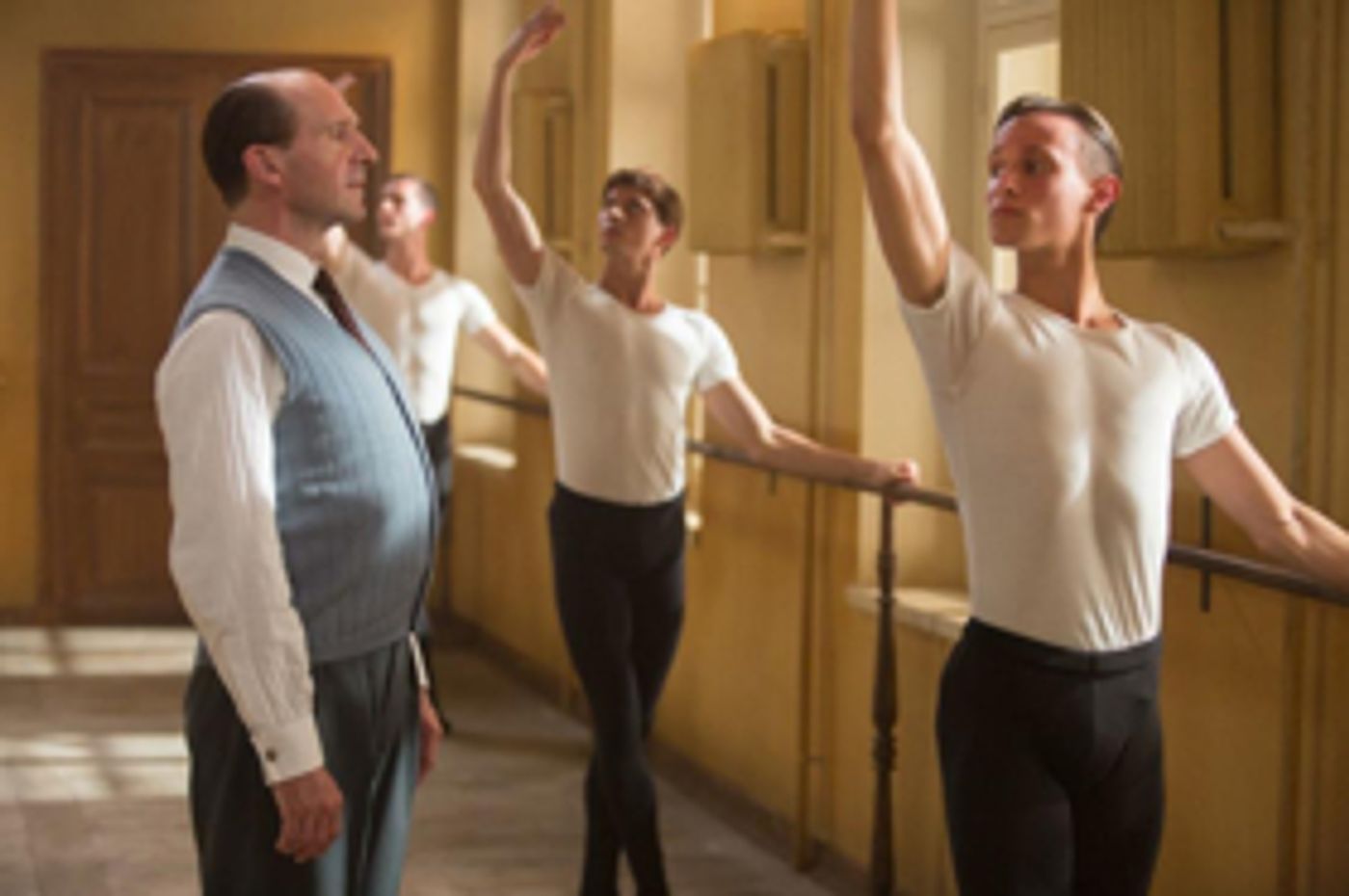Review: THE WHITE CROW

![]() What price does an artist pay for their art? What cost is levied on family and friends? How much of one's old self should be given up in pursuit of finding a new, truer version?
What price does an artist pay for their art? What cost is levied on family and friends? How much of one's old self should be given up in pursuit of finding a new, truer version?
These questions - and many more - swirl around Ralph Fiennes' accomplished The White Crow, which follows Rudolf Nureyev from birth on a cold, clanging train to his astonishing defection, aged 23, in Paris, just a few weeks after the Bay of Pigs debacle had raised Cold War tensions to breaking point.
The movie ebbs and flows between timeframes and locations, but David Hare's tight script and the magnificent cinematography by Mike Eley succeeds in grounding us, even as Nureyev's life tilts and turns.
The old Soviet Union is all grainy greys, owing something to Tarkovsky's masterpiece, Andrei Rublev - we feel the bite of cold and the pang of hunger and see how a chandelier transfixed the odd child with the Tartar's face and the gift to dance.
Leningrad is all squares and space and buildings that look like cakes slathered in marzipan on the outside, but dark and functional within. Haircuts are inadequate, clothes polyester dowdy with the smell of un-unblocked toilets almost wafting out of the screen.
Paris, in contrast, bursts with glamour and Art with the most capital of "A"s. Nureyev is as transfixed by Géricault's Raft of the Medusa as he is by the girls of the Moulin Rouge, the decadence and high culture coming as one to his wide, wide eyes. He knows that he will find himself in this world - monde and demi-monde - his decision to defect already long decided, if not its ultimate time and place.
He still feels the last knockings of Imposter Syndrome, railing against a Russian waiter in a Paris restaurant who sees not the fêted dancer, but the provincial boy with something to prove.
But, like everyone born beautiful, talented and intelligent, Nureyev is never short of those willing to help him and his tantrum is forgiven, forgotten even. The curse of such a combination of brains and beauty is the arrogance that drives perfectionism, but rides roughshod over anyone unfortunate enough to get in the way. (They, naturally, always come back for more.)
Oleg Ivenko has the thankless task of portraying Nureyev and delivers a dazzling debut. He has some of the looks of his subject (if not quite the same physical beauty - who does?), but the critical element of the performance is communication through dance rather than acting.
Ivenko is a dancer and he commands the stage in the scenes that underline why Nureyev was such a sensation, plus he walks like a man who knows he is the star in any company, anywhere, any time. That said, the psychological vulnerability is never quite buried under the starburst of charisma - with the camera on his face so close, so often, that's a challenge met by the young Ukrainian.
The camera stays low and goes in tight for many of the dance sequences - which reveals ballet in all its effortful glory. From above or at distance, the gliding grace, the wispy weightlessness, glorious besting of gravity is still there, and Nureyev's instantly perceptible gift for storytelling is obvious, but we're up close and personal.
Down and dirty, we see the discipline, the power and pain required to set the human body in motion, carving through the air, thumping the floor on landing, grinding joint against joint.
Ballet hurts - and the pain has to go somewhere. It seems the gods offer a trade-off between the balance granted to the physical and the imbalance imposed on the psyche. Nureyev veers from good humour to fits of temper; from charming shy ingenue to boisterous bully; from women to men. Ultimately, of course, from East to West. Wherever he is, he doesn't fit in - so why not be a white crow where where he can fly higher and further?
There's super support from Fiennes himself, who gives the teacher, Pushkin, an ambiguity that never fully resolves. Is he in love with his protégé? Is he in love with the genius's art? Is he just keen to give him everything he can't have - even unto his wife, the wonderfully sexy Chulpan Khamatova? A fine closing scene suggests the two men were collaborators in the game, if not quite in a partnership of equals.
This is no generic biopic, but a close examination of the rewards and sacrifices art demands, a world in which every choice can be priced up, but to stand still is not an option.
I wondered why there was so much tension in the defection scene - even if you did not know the outcome before the movie starts, we're told in the prologue - but the new life Nureyev hesitantly embraces isn't really the point. The tension bubbles up within us because we all have moments like these in our lives, two doors before us a clock ticking, doubts crowding out hopes.
And we'll all have them again soon too.
The White Crow is at Curzon cinemas and on general release.
Reader Reviews
Videos

